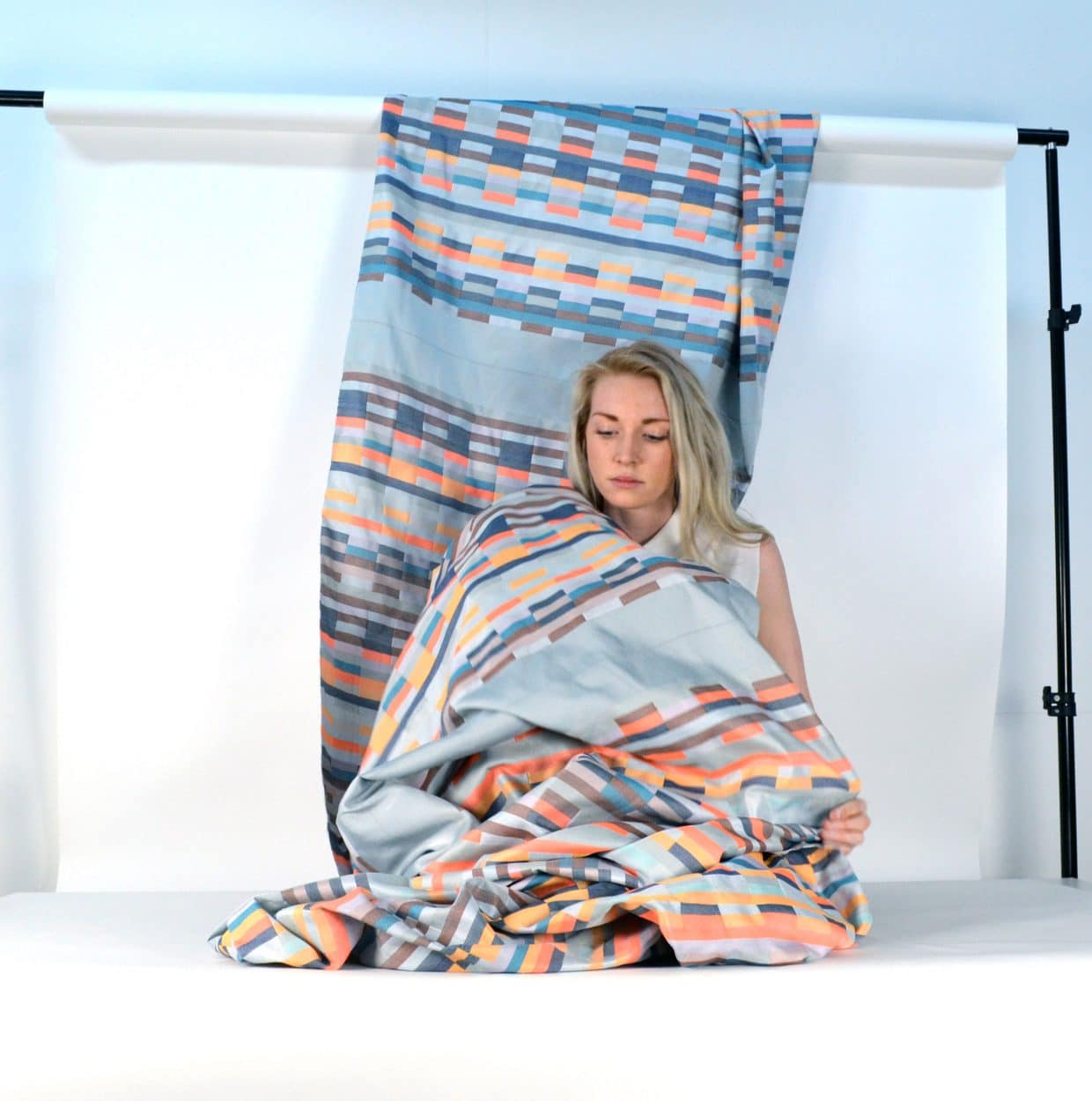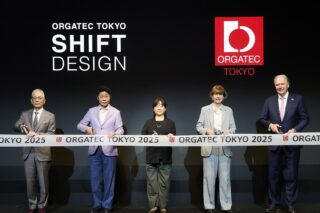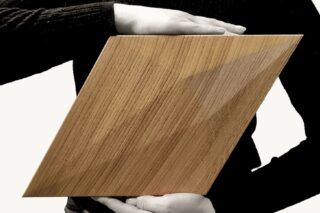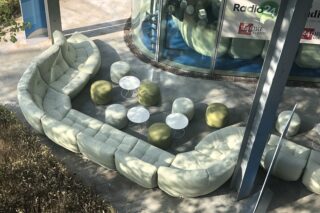Personalized design just took a step beyond individual style: your DNA in printed form. Iona Inglesby, a design consultant at GENEU, launched the startup Dot One in 2015 to be the world’s first DNA lab that uses microchip technology.
Dot One engages design as a tool for the exchange of ideas. Inglesby was struck with the idea of creating personalized DNA prints while working for a Scottish weaving company. There she recognized that the family tartan designs were produced unsystematically and she decided to create an object that would inherently exemplify members of families.
DNA Profiling Technology
In collaboration with a genetics lab, Dot One’s method uses DNA profiling technology to analyze and convert raw genetic data into a personalized pattern. To do so, the data is evaluated by a particular test that scans for short tandem repeats (STRs), specific recurring sites on the genome that contain genetic differences.
The DNA profile accumulates this information from 23 sites. Although humans’ genomes are 99.9% the same, the difference in repetition on the genome allows for that unique remaining 0.1% All the customer has to do is take a swab sample from their cheek using an at-home DNA kit and then mail it in to a lab.
Proceeding from the DNA profile, an algorithm regenerates the data into a color code that designates a color to each piece of information on the genome. The profile is then converted in a color bar that is then repeated to form a pattern.
Beyond individual data, family tree designs can also be commissioned.
Textiles Based on the DNA Profile Patterns
From there Dot One works with Helen Foot Design, the U.K. British textile designer, who meticulously hand weaves the textiles based on the DNA profile patterns. Inglesby is involved with correlating yarn colors with the digital patterns, but Helen Foot is the crafter.
Working in tandem with a local printer in East London, the posters are printed on tactile German etching paper.
Soon, people who already have their genetic data on hand will be able to integrate their information via a genome database so they can purchase a product directly.
Dot One is also working with a charity to contribute a portion of their profits to the research and awareness of inherited and genetic diseases.











